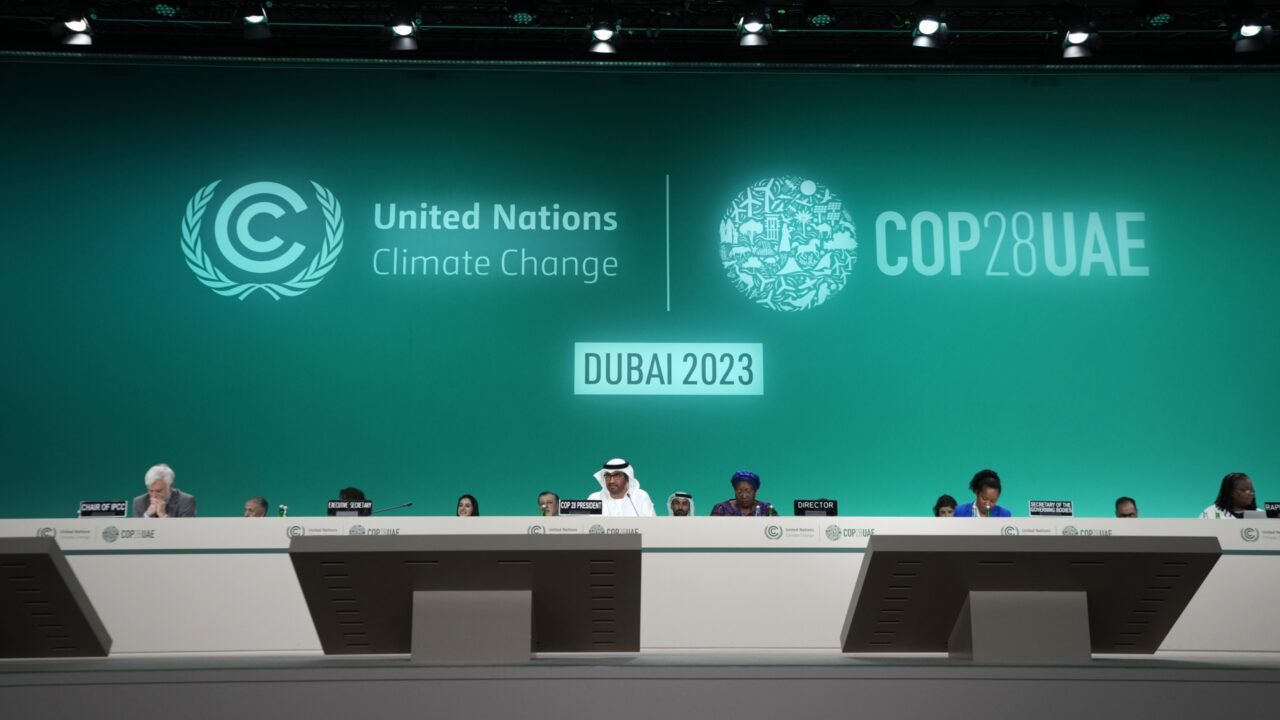COP28: France has a key role to play
COP is taking place this year in the United Arab Emirates, whose subsistence depends heavily on fossil fuels. Despite the controversy surrounding the choice of venue for the summit, the EU and France must not turn their back on negotiations with the Arab state on the gradual phase out of these fuels
The next United Nations Climate Change Conference (COP28), organised in Dubai, in the United Arab Emirates (UAE) for the 30 November to the 12 December, risks becoming torpedoed by the irreconcilable dispute on the fate of fossil fuels. Can France leverage its special relationship with the UAE, the host country for COP28, to push the reset button and avoid failure?
Trying to speak for all oil and gas producers, the UAE never got behind the idea of negotiating a specific timeline the phase-out of fossil fuels, but instead declared that COP28 must work towards “an energy system free of unabated fossil fuels in the middle of this century”. This approach, which is based on reducing emissions through carbon capture, has disappointed those calling for a complete phase-out of fossil fuels.
The scientific community has expressed doubts about the viability of carbon capture technology and some European governments, including France, are concerned that it could be used to delay the transition to clean energy. France is also one of the EU member states with the strongest commitment to phasing out fossil fuels.
Paris is also not blind to the resentment of the climate community, which has never quite accepted that the UAE, whose subsistence depends on fossil fuels, should host COP, nor that the head of the UAE’s main fossil fuel company, as well as the country’s main renewable energy company, should be its president.
In France itself, climate campaigners recently wrote a letter stating that “holding a climate conference in Dubai is absurd and dangerous”. This will be the tone of the media coverage of COP28 in Europe, and it is highly likely that this negative narrative will have an impact on the atmosphere of the official negotiations.
Failure at COP28 would deepen divisions within the international community, preventing any concrete progress towards climate goals
Yet failure at COP28 would deepen divisions within the international community, preventing any concrete progress towards climate goals. France and Europe should lead by example, reaching out to fossil fuel producers to focus on opportunities for progress. The Gulf monarchies represent a good test case for such a pragmatic approach.
Partners in the energy transition
France can achieve this strategic objective. In July 2022, the UAE and France signed a comprehensive strategic energy partnership, and Paris signed a memorandum of understanding on collaboration with Riyadh. This year, in the run-up to COP28, Paris has been working more closely with the UAE, and the French minister for the energy transition, Agnès Pannier-Runacher, has made a commitment to Riyadh to explore opportunities to reduce emissions. Based on European priorities and the tools of the Green Deal, and the UAE’s own action plan for COP28, a recent paper by the European Council on Foreign Relations identified such an area for constructive cooperation.
In view of their know-how and experience in the area of the energy transition, but also with existing industrial and technological ties as well as their geographical proximity, France and Europe should be the partners of choice for the Gulf in matters of decarbonistion. If these partnerships are successful, they could serve as a springboard for industrial decarbonisation efforts and the energy transition further afield. This could be the kind of resent that COP28 needs to escape its ominous prospects.
This article was first published in French in Les Echos on 30 November 2023
The European Council on Foreign Relations does not take collective positions. ECFR publications only represent the views of their individual authors.



